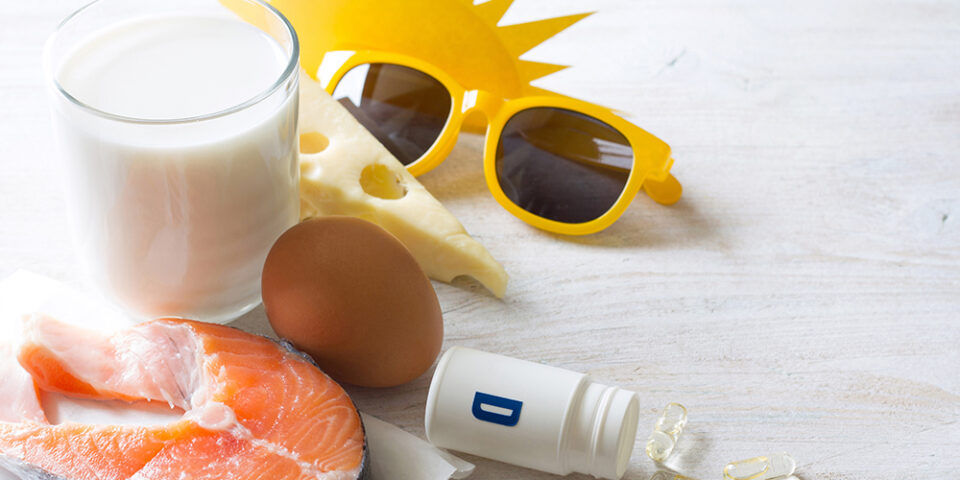4 facts about vitamin D you may not know
You probably know that vitamin D helps keep our bones strong. It’s also been known to help heart health and regulate blood sugar. Does this mean you should take a vitamin D supplement? Internal medicine physician Elise LeBel, MD, explained four facts about Vitamin D you may not know.
#1: Most people are vitamin D deficient
About 70% of Americans are vitamin D deficient, and some are profoundly deficient. Because vitamin D’s main job is to help your bones absorb calcium, a shortage of vitamin D can lead to osteoporosis, which causes bones to become fragile and break more easily. But there are other symptoms, too.
“Some of my patients who are vitamin D deficient feel less focused and have dental pain or fatigue,” Dr. LeBel said.
A blood test is needed to determine if you have a vitamin D deficiency.
According to the National Institutes of Health, the amount of vitamin D needed depends on a person’s age. Average daily recommended amounts are below in micrograms (mcg) and International Unites (IU):
- Birth to 12 months – 10 mcg (400 IU)
- Children 1 to 13 years – 15 mcg (600 IU)
- Teens 14 to 18 years – 15 mcg (600 IU)
- Adults 19 to 70 years – 15 mcg (600 IU)
- Adults 71 and older – 20 mcg (800 IU)
#2: Vitamin D isn’t really a vitamin.
“Vitamin D is a steroid hormone, but we probably won’t change its name in our lifetimes,” Dr. LeBel said. “It has more in common with estrogen and testosterone than it does with other vitamins. Because it’s a steroid hormone, it also acts as a key in cells to turning on different processes.”
This includes helping muscles move and helping the immune system fight off bacteria and viruses.
#3: You can increase your vitamin D level naturally.
The main and most effective way we get vitamin D is through sunshine. “Exposing your forearms to sunshine 10 minutes a day, most days of the week is enough for most people,” Dr. LeBel said.
You can also eat more vitamin D fortified products such as milk products. “The fact that fewer people are consuming milk products has led to people getting less oral vitamin D and calcium in their diet,” she said.
Fatty fish like salmon, tuna and trout are the best natural sources of vitamin D. You can also find small amounts of vitamin D in beef liver, egg yolks, cheese and mushrooms.
Foods fortified with vitamin D include:
- Milk and plant-based milk alternatives (usually includes about 3 mcg or 120 IU of vitamin D per cup)
- Breakfast cereals
- Some brands of orange juice, yogurt and margarine
#4: You can get too much vitamin D through supplements if you’re not careful
One of the most overlooked facts about vitamin D is that taking too much can be harmful.
“Vitamin D is something that’s easy to measure so that you can make sure you’re taking the right amount,” Dr. LeBel said. “If you take too much, vitamin D toxicity can cause brain fog, as well as aches and pains. Vitamin D also does not wash out of your system quickly. So, if you take too much, you’re just stuck waiting for it to come out, which can be weeks.”
You can’t get too much vitamin D through sunshine, however, since your skin limits the amount of vitamin D it makes.
Bottom line – don’t take vitamin D unless your doctor advises it
Dr. LeBel said it’s best to talk to your doctor before taking vitamin D or any other kind of vitamin or supplement to determine if it’s appropriate for you.
Find the care you need, close to home
Our primary care physicians provide well visits and everyday care when you need it with compassion and expertise.
Find Primary Care Near You

